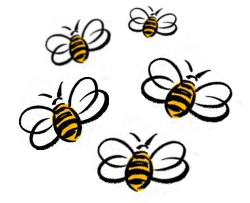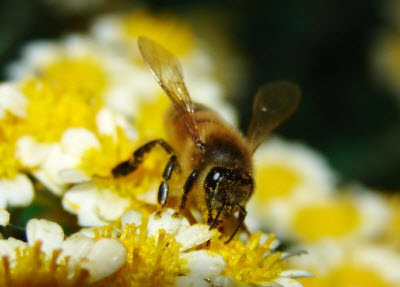When Barak Obama was elected, many in the sustainability movement believed that they finally had an ally in the White House. However, the President’s agricultural appointments tell a different story.
|
|
|||
|
A 13-state survey of honey bee pests and diseases that will help USDA scientists to determine the factors that may be contributing to the decline of honey bee colonies nationwide. Recent research from USDA points to a correlation between a fungus and a family of viruses that may be working together to cause the Colony Collapse Disorder in honeybees. Many still believe, however, that other causes such as pesticide use in agriculture and GMOs that produce pesticides, also play a role in the collapse. Last week, current and former chicken growers, mostly from the South, gave attorney general Eric Holder and USDA secretary Tom Vilsack accounts of a lack of competition, poverty-level earnings and bait-and-switch tactics among the big chicken producers. “This system takes hard working farmers and makes them indentured servants on their own land,” Kay Doby, a former chicken farmer from North Carolina, told a crowded room at Alabama A&M University. Ignoring criticis and finding their concerns to be “unlikely,” on May 12, 2010 APHIS approved for continued field tests the planting of experimental genetically modified eucalyptus trees across seven states. In December 2009, the USDA has released its draft environmental impact statement proposing to deregulate Monsanto’s genetically engineered alfalfa. GMO Journal submitted its public comment to the agency urging it to continue regulating GE alfalfa. There is still time to take action before the March 3, 2010 deadline. Do you part — tell USDA to reject Monsanto’s GE alfalfa. The United States Department of Agriculture (“USDA”) and its Animal and Plant Health Inspection Service (“APHIS), which oversees biotechnology regulation, was heavily criticized by its own Inspector General 2005 audit report. Did APHIS change its way since then? As a result of policies enumerated by the Coordinated Framework, regulatory control over GMOs in the United States was divided among different regulatory agencies. The consequences of such a decision was a myopic, and at times, haphazard regulatory control by each agency over GMOs. For USDA, this raises significant questions as to the agency’s ability to effectively regulate second generation GMOs. How can the public trust government agencies to ensure the safety of GMOs if those agencies have a long track record of failure? USDA’s regulatory track record begs the question of whether it is a government “regulatory” agency or an industry group. The United States government consistently promotes its regulatory framework for genetically engineered organisms as comprehensive and strict. Is this a public relations maneuver, wishful thinking or the story of the emperor without clothes? The USDA provides a number of exemptions for articles that it has determined do not pose a plant pest risk. One of such exemptions authorizes the introduction of certain regulated articles without a permit provided that USDA is notified in advance. The United States Department of Agriculture (“USDA” or “Agency”) requires that anyone desiring to import, transport interstate, or plant a regulated article must apply for a permit or make a notification to the Agency’s Animal and Plant Health Inspection Service (“APHIS”) that an introduction will be made. Under the Plant Protection Act (“PPA”) USDA requires that anyone desiring to import, transport interstate, or plant a “regulated article” must apply for a permit or make a notification to APHIS that an introduction will be made. The United States Department of Agriculture shares significant regulatory authority over GM crops with FDA and EPA. Transgenic, or genetically modified, plants are regulated by USDA’s Animal and Plant Health Inspection Service (“APHIS”) under the Plant Protection Act (“PPA”). Presently, it is questionable whether the genetically engineered foods are adequately controlled and/or regulated under U.S. law. There is no single federal statute or federal agency that governs the subject matter. Three federal agencies are primarily responsible for the regulation of genetically engineered foods - the Food and Drug Administration (FDA), the Environmental Protection Agency (EPA), and the U.S. Department of Agriculture (USDA). |
|||
|
 |
|||






